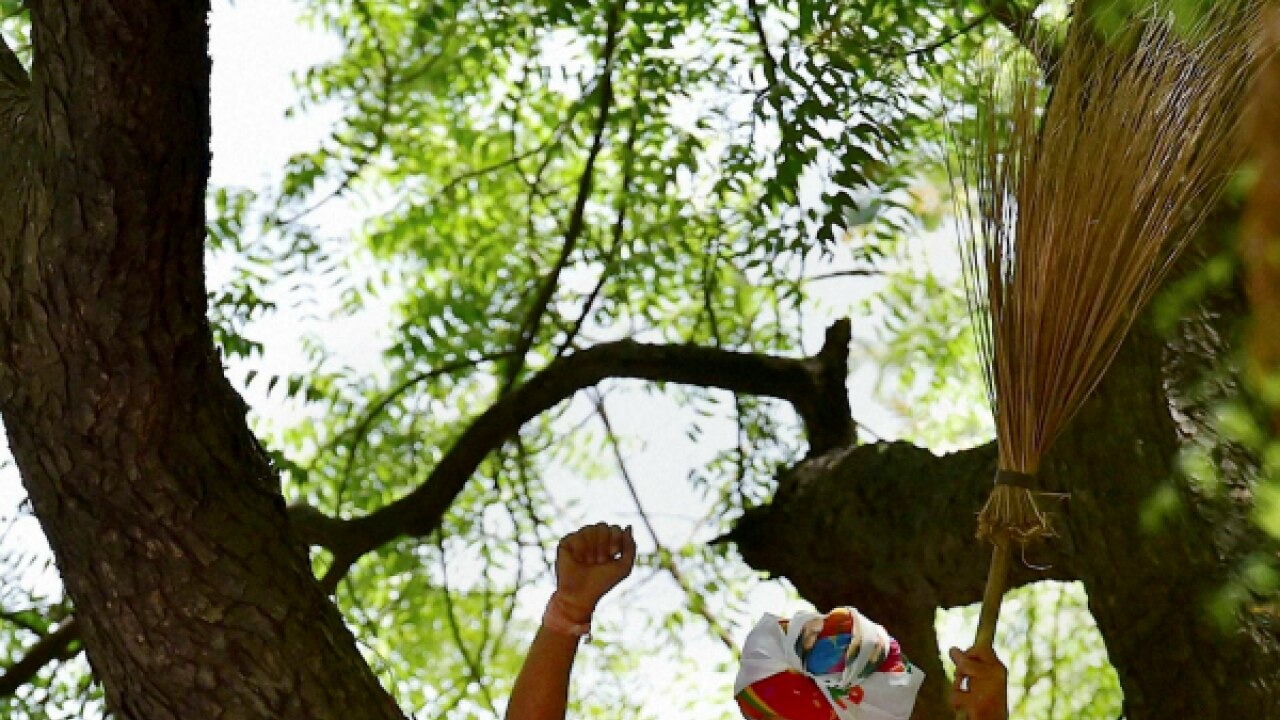
Gajendra Singh’s bereaved family wants a government job for a member of the family. Ankit Keshri’s parents want Mamata Banerjee to appoint his elder brother as a functionary in the West Bengal government. The prospect of securing a job with the Sarkar mitigates the pain and the sorrow of death. In any part of India this form of request, associated with a misfortune, is so common as to be unnoticed. It is in fact expected.
Gajendra Singh met an untimely end by a quirk of fate. He was not meant to die; he was only meant to become a temporary hero in the cause of farmers whose land could be acquired by the government. He was chosen for the role because of a marked trait in his personality that craved for public recognition through unconventional behaviour.
The AAP leadership knew that he would climb that tree. So did the Delhi police, who would have listened in to the telephonic conversations between AAP leaders and their chosen actor in a drama that went horribly wrong. Neither AAP's leaders nor Delhi’s police brass thought that the forty-one years old, portly, Gajendra Singh would be forced to physically act out the part of the martyr. AAP’s leaders expected the police to intervene. The police had decided to let the directors and producers of the drama reveal their true intent by not intervening!
When Gajendra was left to take his own split – second decision in the absence of a contingency script he took the wrong one. And now the family has demanded its pound of flesh – a Sarkari job. Who will oblige? The AAP Sarkar in Delhi? The BJP Sarkar in Rajasthan, the home State of the unfortunate actor? The family is not concerned about the provider. I am sure they will be happy with either, happier still if both governments oblige in a spirit of healthy, politically – influenced competition.
The case of young Ankit Keshri is even more intriguing. Politicians were not directly involved in his cricketing career. He played Club cricket in Kolkata and reached some degree of success by being selected for the State U-19 side. It is not certain if Ankit Keshri would have made the grade for IPL or other major remunerative employment in cricket – crazy India, but a sad end to this prospect caused by a misdirected cricket ball has prompted the family to demand the next best option – a Sarkari job in Mamata’s Bengal.

The demand for government employment based on sympathy and compassion is becoming an accepted norm in government recruitment. I noticed this trend in Punjab during my 3 ½ years stint there, first as DGP and then as Advisor to the Governor. It was not confined to the police alone. Any family that lost a son to a terrorist’s bullet would demand employment in the government for a member.
Even senior appointments in the bureaucracy or the police were made by routinely accepting such requests. The concept of suitability and merit that Public Service Commissions are supposed to evaluate is kept in abeyance at such extraordinary times. The problem arises when compassion becomes a habit and is carried forward beyond such extraordinary times. Unfortunately, this is happening more often than necessary resulting in deterioration in standards of service delivery.
A clear-cut set of rules defining the powers of the government of the day to make compassionate appointments should be laid down by law so as to make the process justiciable. Unless this is done the scope for patronage and nepotism expands exponentially to the great detriment of public good.
Government jobs at lower levels are greatly sought after by the poorly qualified because it provides maximum opportunity to work less and earn more, of course by recourse to corruption. The difficulty involved in getting an official removed even for crass incompetence or massive corruption makes the employment in government extremely popular.
In Punjab, I experienced another form of expropriation originating in tragedy. Families demanded land or housing from the government to make up for the loss of a dear one. It did not matter if the victim’s family had sufficient land or a palatial private home in its possession. They just wanted more. Even officers who were not injured made such demands, the justification given being service in difficult times!
Though I had not made any such request the Maharashtra government very magnanimously decided at one of its Cabinet meetings to allot a flat from the CM’s quota to me. Shrikant Jichkar who moved the resolution said it was in consideration for the task I had undertaken for the nation. The thought was touching but the principle flawed!
After all, a soldier who goes to war does not expect land or a job for those he leaves behind. He fights because it is his duty to the motherland and because he signed up for the job. And so I refused the government’s kind offer. The rejection surprised the then Secretary in charge of Housing, Dinesh Afzalpurkar. He was kind enough to tell me that mine was an unique case of a person who did not ask and refused when the offer was made. I reminded him that the rules did not permit an officer who possessed a house or flat to accept such largesse from the CM’s quota.
To sum up I will only say that our concept of patriotism and duty should be guided by what Lord Krishna told great Prince Arjuna before the battle of Kurukshetra, that men should do their duty without expecting any returns. Then and then only will the quest for government employment and grant of land or flats vanish from public discourse.